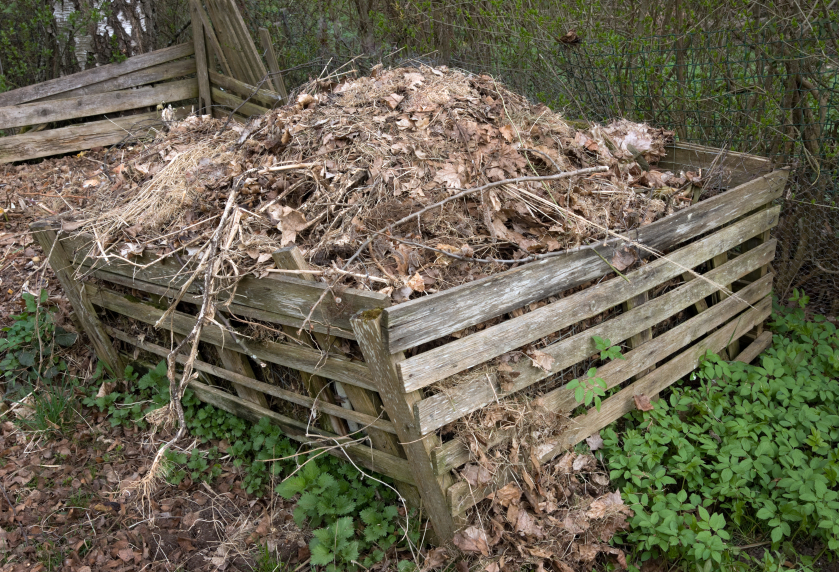Frequently Asked Questions about Residential Composting During the Covid-19 Pandemic

By Cary Oshins – US Composting Council
Can I continue to compost at home during the pandemic?
Absolutely! There is essentially no risk of transmitting the disease though the composting or vermicomposting bin.
The virus is not a living organism, but a protein molecule (RNA) covered by a protective layer of lipid (fat). Since the virus is not a living organism it is not killed but decays. The disintegration time depends on the temperature, humidity and type of material where it lies: between 3 hours (airborne droplets) to 24 hours (porous surfaces like fabris or cardboard) to 72 hours (hard smooth surfaces like plastic) (1). In any case it will definitely not survive the weeks or months in your compost pile, even a not-very-active one.
What about the left over food, that might have been coughed or sneezed on?
The FDA, CDC and WHO are unanimous that currently there is no evidence of food or food packaging being associated with the transmission of COVID-19 (2).
Can I continue to put my used tissues in my compost?
Sure! As mentioned above, the virus will not last long in the compost pile, and wet tissues and napkins have always been welcome sources of carbon (aka browns) in your compost bin. This is true for all common germs that might be on your tissue—they are adapted to live in a human and don’t fare well out in the environment for very long. This is not to say you can’t catch anything from a compost pile! For example, you should not put dog or cat feces in your compost bin due to concerns of toxoplasmosis. Here is a nice summary of Compost Pile Hazards. Bottom line: wear a face mask if you are sensitive to dust, use gloves to keep germs out of cuts on your hands, and always wash your hands when done!
Are there extra precautions I should take?
Yes! While neither the compost pile nor the compost itself will be a source of transmission, there is risk of transmission from commonly touched surfaces. That is why frequent and thorough hand washing is so crucial. If you are disinfecting frequently touched surfaces in your house, like door knobs or drawer handles, don’t forget to include the handle of your kitchen compost bucket. You should always wash your hands after handling compost, because there are plenty of other germs out there! (3)
1 https://www.nih.gov/news-events/news-releases/new-coronavirus-stable-hours-surfaces
2 https://produceprocessing.net/news/produce-marketing-association-issues-coronavirus-guidelines/
3 https://www.cdc.gov/coronavirus/2019-ncov/prevent-getting-sick/prevention.html
